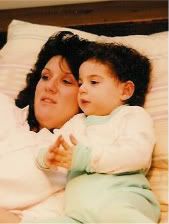Introduction – Section 1
"My eyes lit up. Could the problems I'd assumed were inevitable be blamed on the tiny thyroid gland — and be reversed with a tinier pill? Maybe I didn't have to renew my gym membership after all."
What I feel Ms. Carlton is inferring here is that Synthroid and its brothers and sisters (Levothyroxine and such) will simply cure all of her symptoms – fatigue, weight gain, lack of energy, brainfog – and then she will happily carry on her life. That is a piece of information that should never be relayed to anyone. It isn’t as simple as that. While she does state that it isn’t simple in the next paragraph, I don’t think she should have used such a comment as a clever quip. It sends the wrong message to individuals who are not privy to the ins and outs of thyroid problems. I’ll explain further on this as the article progresses.
"At least 13 million Americans have some form of hypothyroidism, says Jeffrey Garber, M.D., who (literally) wrote the book on it — The Harvard Medical School Guide to Overcoming Thyroid Problems."
"(Hyperthyroidism, meaning thyroid hormone production is in overdrive, is a less-common condition.)"
"Hypothyroidism has been recognized since at least the 17th century, yet it's become a disease du jour…"
"'…people have lots of questions.' There's no shortage of answers for them. Hundreds of websites, a virtual cottage industry, profess to educate women about hypothyroidism."
"To confirm a hypothyroid diagnosis, many doctors suggest two additional blood tests: one to check the levels of T4 hormones (low levels confirm hypothyroid) and another to check for antithyroid antibodies (to see whether you have Hashimoto's)."
“The goal isn't just to ease symptoms — it's also to preempt new ones.”
“A recent Danish analysis of a small group of newly diagnosed hypothyroid patients found little or no change in patients' fat mass after one year of thyroid treatment.”
"'The goal is to take the lowest dose possible to get the TSH in the 1 to 2 range,' says Daniel Duick, M.D., an endocrinologist in Phoenix and president of the American College of Endocrinology."
 ||
||





"It is obvious that many of you write out of frustration with your own unresolved symptoms, and we are sympathetic to your ongoing difficulties."
That line drove me nuts. No. They're writing out of frustration with your poorly researched/fact-checked/cited/edited article. Trying to accuse readers of taking out their anger at their illness on your poor article is a ridiculous level of arrogance. You're not above reproach, no matter how well known your publication. Between Carlton's ludicrous advice (CROSSWORD PUZZLES?! Really?), her even more ludicrous glossing over of anything other than the thyroid disorder she wanted to talk about, and the editor's flippant, insulting response; any desire I had to pick up GH is gone. First rule of magazine editing. When responding to your public, maybe try not to sound insulting or accusatory. My god.
It was just like taking a desiccated porcine thyroid supplement accept with the chlorine after taste. Hate when I run out. I suggest that you try it and see for your self.
I will NEVER give up my hypothyroidism. I do split my dose, taking half the thyroid natural supplements in the morning and half in the evening. I don't have sleep issues with that though some people do.
A thyroid health supplement is also known to address the thyroid problem and its association with cholesterol and weight issues. Since the thyroid gland is known for the variety of functions that it may deliver to the body, it is significant to help it serve its purpose through a supplement.
Excellent article above. May be you need more time to share all the knowledge that you have.
So, thanks for share this information with us, I always come across this amazing post.
Good one , thanks for sharing cancer organization list.
what horrifies me is that people actually read Good Housekeeping to get medical information!